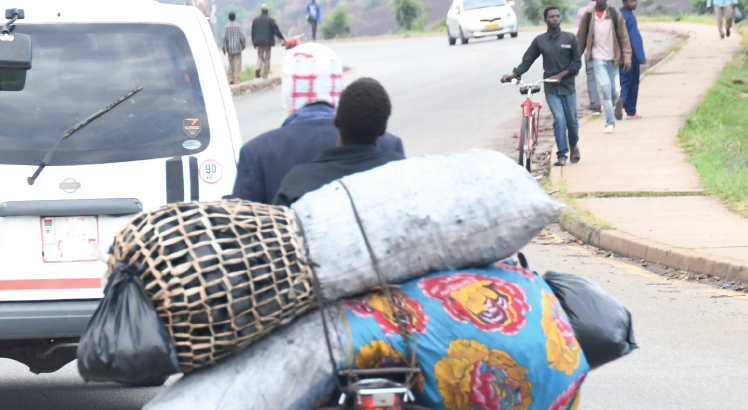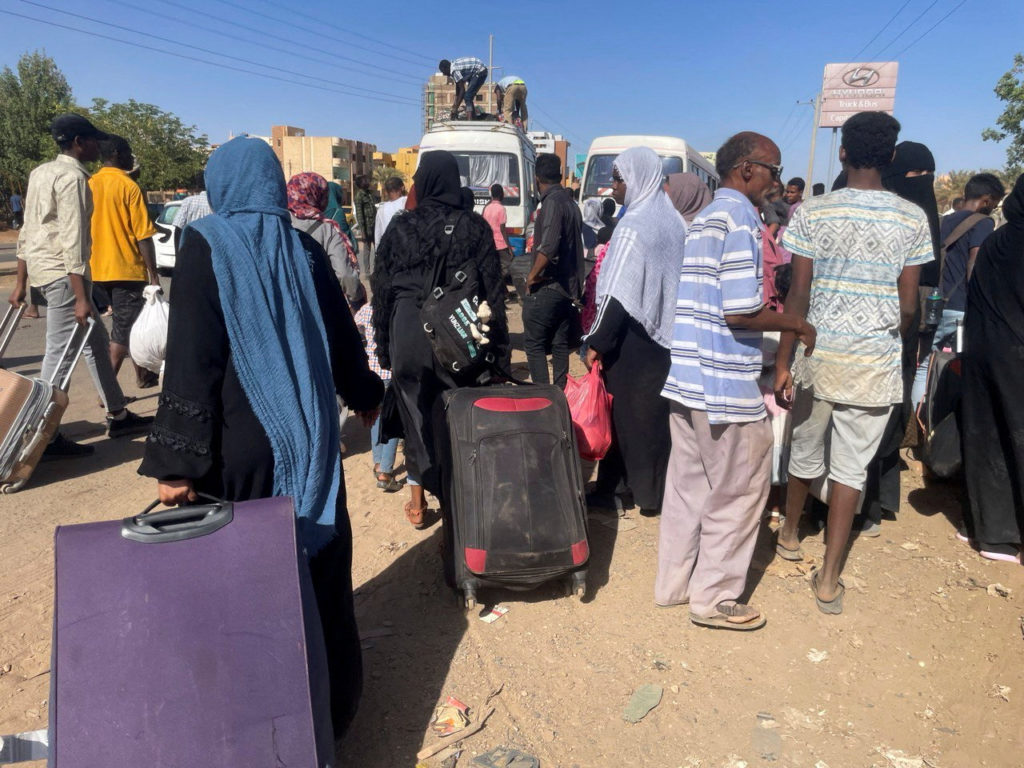Motorcycle taxis, locally known as kabaza, started as a convenient transport mode, but have over the years turned into risky rides with accidents increasing by about 1 700 percent between 2014 and 2022.
Statistics at the Directorate of Road Traffic and Safety Services and corroborated by Malawi Police Service indicate that in 2014, the country only registered 71, but the figure jumped to 912 in 2022.
A motorcycle taxi operator blocks incoming traffic with bags of charcoal
A road safety expert has since called for strict enforcement of the law on motorcycle operators.
From 2014 to 2015, there was a 450 percent increase from 71 to 391 accidents which went down in 2016 to 332 and 291 in 2017. But in 2018, there was an increase to 433 which nearly doubled to 830 in 2019 while in 2020, the figure stood at 1 488.
However, the years 2021 and 2022 have seen a reduction in accidents to 1 268 and 912.
In an interview, safety specialist Kondwani Nyirenda argued that the surge in accidents pointed to lack of or poor enforcement of the law, which has led to most motorists operating without requisite training.
He said: “One of the primary reasons for the high number of motorcycle accidents is the lack of regulation and enforcement of traffic laws in Malawi. Many motorcycle riders do not have proper licences or insurance, and there are few consequences for violating traffic laws.
Makwecha: We lobbied
driving schools
“Moreover, many roads are poorly maintained, and the lack of proper signage makes them hazardous for all motorists. This, combined with the reckless driving and lack of training among motorcycle riders, creates a dangerous environment for everyone on the road.”
Nyirenda suggested improved regulation and enforcement of traffic laws, especially for motorcycles as a possible solution to curb these accidents.
He alleged that there is fear to enforce the law as law enforcers fear reprisals from politicians who do not want kabaza operators regulated for purported political mileage.
Nyirenda said: “Politics have exacerbated the situation now as the law enforcers are not even tackling the issue anymore in fear of reprisals from the political leaders. It’s indeed free-for-all operation!
“This is a sad situation, risking lives unattended to on the roads. We need to still ring the bell louder to the political leaders, as they are losing voters dying on the roads and leaving others permanently disabled if lucky. It’s not even a political gain at all, but a loss.”
But National Police spokesperson Peter Kalaya in an interview yesterday said the increase in the numbers has nothing to do with lack of enforcement of the law, but rather an increase in the population which has resulted in increased road users.
He said the decrease in accidents during some years is a result of improved law enforcement through deployment of police officers on major public roads, among other efforts.
“Malawians will agree with me that from the years 2014 and 2015, people saw a business opportunity in the kabaza and operators have been increasing over the years. As such, despite our efforts, we have more and more people on the roads as pedal and motorcycle taxis. This increase has also contributed to the increasing trend in these road accidents,” Kalaya said.
He further said the police is working hand in hand with Road Traffic and relevant associations to reduce accidents.
On her part, Road Traffic spokesperson Angella Makwecha said they have undertaken several measures to deal with kabaza accidents, including the development of a motorcycle training manual as well as improving the capacity of motorcycle instructors in all driving schools.
She said: “The Directorate of Road Traffic and Safety Services managed to lobby with driving schools to reduce training fees for kabaza riders so that the training is affordable for the riders. The directorate is using mobile MalTIS [Malawi traffic Information System] to register them in the system for purposes of licensing and registration of the motorcycles.
“The mobile MalTIS is ideal as it enables them access services in their respective operational areas in various districts. We have also created a special desk for speedy processing of kabaza issues at all regional offices.”
However, hundreds of kabaza riders are still plying the streets without registration plates and crash helmets, sometimes in full view of police and Road Traffic officers.
The World Health Organisation ranks road traffic accidents as the fourth leading cause of death in Malawi. Since 2019, over 1 500 have died and more than 1 400 injured, with long-term hospitalisation and disabilities.
The post Kabaza road accidents up by over 1 700% first appeared on The Nation Online.
 Moni Malawi
Moni Malawi 

